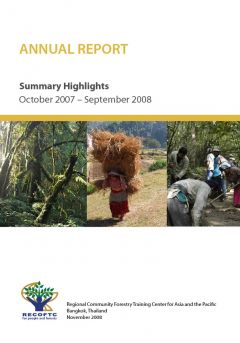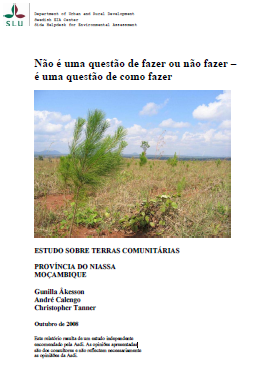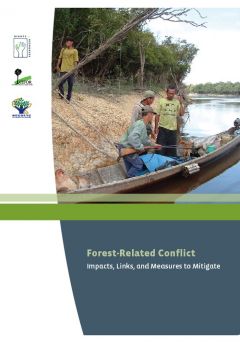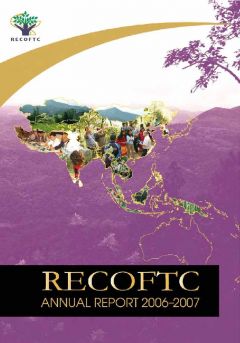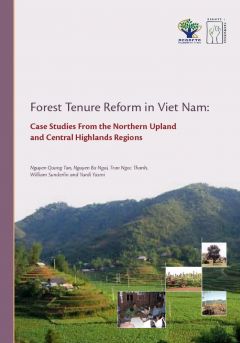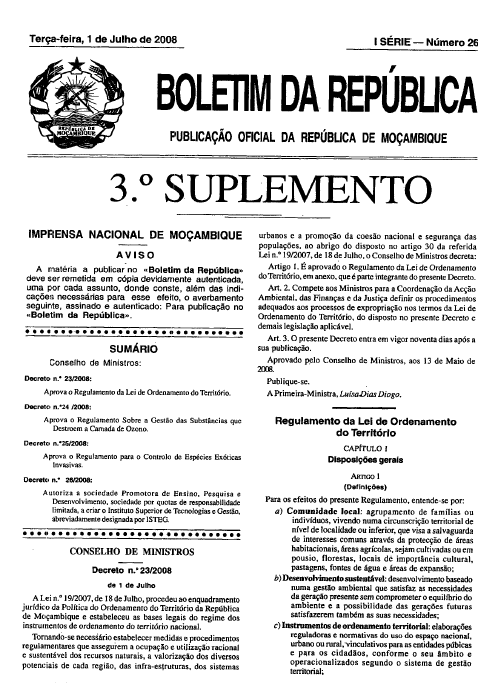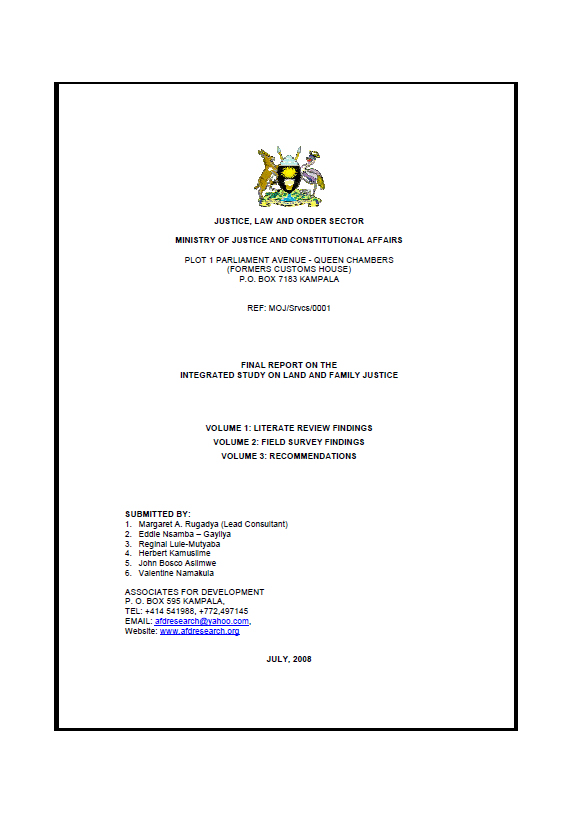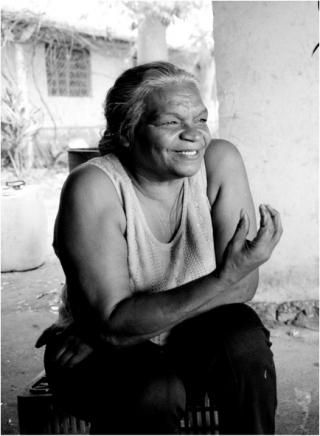RECOFTC Annual Report 2007-2008
The year 2007–2008 was the final year of the RECOFTC Program Phase 2004–2008. We are pleased to report that the four-year Program Plan was successfully implemented on time, and we fulfilled all the major remaining commitments, even exceeding targets in some areas.

